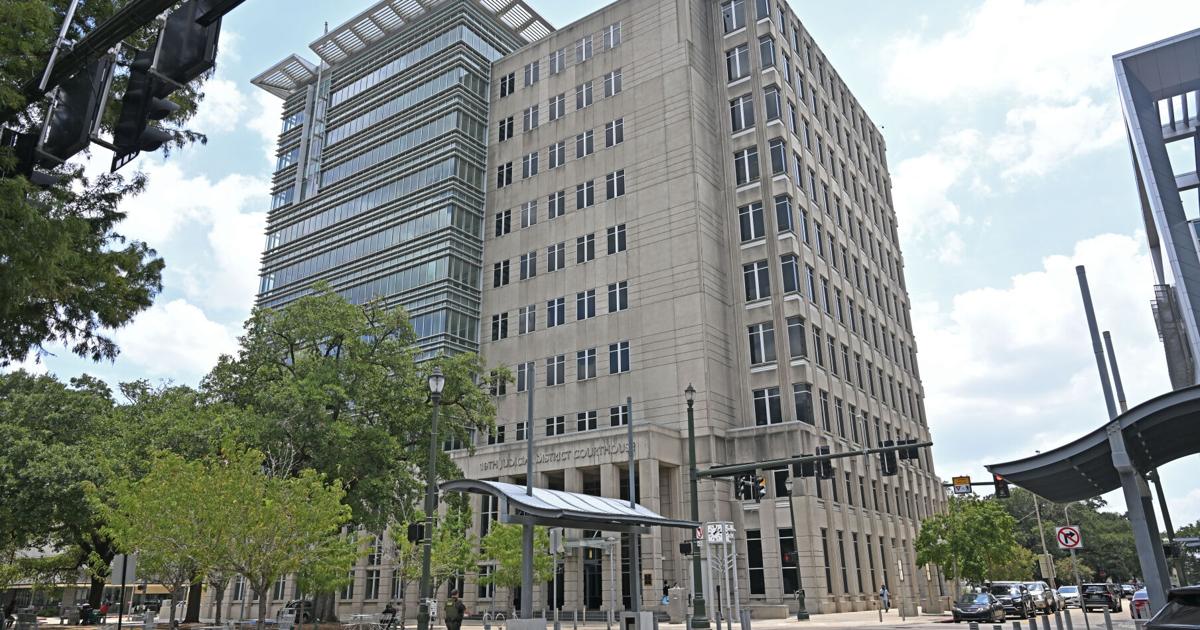Copyright Baton Rouge Advocate

The former director of a Baton Rouge groundwater protection district conspired with an infrastructure company executive to rig public bidding for a $45 million to $50 million water meter contract that went to the executive's company in late 2021, newly revealed documents allege. The ex-director, Gary Beard, and the executive, Samuel Jason Hewitt, were indicted Wednesday on charges brought by the Louisiana Attorney General's Office of contract conspiracy in restraint of trade, monopolizing trade and malfeasance in office. Assistant Baton Rouge Parks Superintendent Oscar Reed Richard was also indicted on similar charges in connection with a different contract associated with Hewitt and his company that was finalized around the same time, court papers show. In a joint statement issued Friday, attorneys for all three men say their clients "categorically deny the charges brought against them" and that the men have served their "community and professional institutions with integrity and distinction." "These indictments are based on a mischaracterization of legitimate business and governmental activities. We are confident that once the full facts are presented, it will be absolutely clear that no criminal conduct occurred," the statement says. Documents filed in connection with the arrest of Beard on Wednesday reveal new details of the scheme that investigators allege occurred between Beard and Hewitt. They allege Beard and Hewitt colluded to structure a public offering "tailored to a single commercial model" sold by Hewitt's company, Sustainability Partners LP. Hewitt is listed online as the company's managing partner of infrastructure. The Capital Area Ground Water Conservation District, which Beard led until last month, was seeking a service agreement to install, maintain and monitor hundreds of groundwater pumping meters, plus data transmission systems and salt detection equipment for an annual fee. For decades, the district regulated large users of the Southern Hills aquifer, which is the primary drinking water source for much of the Baton Rouge area but one that is also one heavily used by industry. One of the major issues has been protecting the aquifer against underground saltwater intrusion. Groundwater pumping exacerbates this intrusion, so pumping levels have been of intense interest for the commission, state regulators, local activists and researchers at LSU. The pumping meters deal, in which the district leased the equipment with a future option to buy, drew initial interest from three companies, investigators say in the documents. But Sustainability Partners of Chandler, Arizona, ended up submitting the only formal bid to the offering, what is known as a request for qualifications, or RFQ. Louisiana Bureau of Investigation agents say Beard developed the public offering after receiving language in advance from Hewitt, including the company's "solicitation template." An analysis by investigators found an approximately 95% similarity between the public offering from the groundwater district and Sustainability Partners' solicitation template. The alleged similarity was based on "extensive matching of content, structure, and procedures," investigators claim in the documents. The submitted Sustainability Partners language also included proprietary terms that would "effectively restrain or eliminate other bidders," investigators allege. Among that language was the term "Infrastructure as a Service," which investigators say is a federally registered trademark of Sustainability Partners. "Evidence obtained during this investigation disclosed that Gary Beard and Jason Hewitt knowingly engaged in bid-rigging activities intended to restrain or eliminate competition and ensure Sustainability Partners' exclusive access to the (groundwater district's) public contract," an affidavit of probable cause says. Beard was booked into East Baton Rouge Parish Prison on Thursday and released on $30,000 bail Friday. Parish jail records don't show that Hewitt or Richard had been booked by Friday morning. In the joint statement, the defense attorneys countered that the "allegations of conspiracy, monopolization, and malfeasance are not only unfounded but also fail to reflect the complex regulatory and operational contexts in which our clients acted." "We urge the public to withhold judgment until all evidence is reviewed in a court of law. Our clients look forward to clearing their names and restoring their reputations,” the joint statement adds. The statement is from Don Cazayoux, Lane Ewing, John McLindon and Walt Green, all of whom have years of experience in white-collar criminal defense, as former federal prosecutors or both. Cazayoux and Ewing are representing Beard. McLindon is representing Richard, and Green is representing Hewitt. Green and Cazayoux are both former U.S. attorneys for the Baton Rouge region. Under an RFQ for services, price isn't the sole consideration, as is the case in public bids for things like roads or materials, but also the qualifications and experience of the company and the terms of the deal. While that type of public offering is still designed to give local governments and taxpayers the best deal for their money, an RFQ offers governments and bidders some flexibility on price because other factors are taken into consideration to weigh which proposal matches the public offerings' demands the best. In that sense, an RFQ's language can play a key role in weighing which bid should win. Attorney General Liz Murrill and State Treasurer John Fleming have taken issue with Sustainability Partners' contracts — at least 20 local governments have signed them — because they allege they are costly and opaque and set up long-term debts that evade traditional vetting by the State Bond Commission and traditional infrastructure bidding. Murrill's criminal investigators pointed out that the groundwater meter deal didn't have a final cost but that the figure depended on various outcomes. Estimates have put the value of the deal at $45 million to $50 million. The investigators say they established that Beard and Hewitt had shared the public offering language from statements that Beard had made in meetings of the groundwater district's oversight commission explaining the deal to commissioners. Investigators also drew on transcripts from an under-oath interview and from court testimony that he delivered for civil and tax cases brought by Baton Rouge Water Co. against the groundwater district that disputed the metering deal, its cost and the legality of the fees associated with paying for it. In the under-oath interview for the civil case with Baton Rouge Water, for example, Beard acknowledged to a lawyer that "'a lot of the information in our RFQ matches what theirs has,' and when pressed further, conceded that 'it's very close.'" Baton Rouge Water and ExxonMobil had fought the metering deal and pumping fees associated with it as too costly and redundant. The biggest users of Baton Rouge's groundwater aquifer, the two companies already had their own meters, they said. After the push by the groundwater district began and amid the dispute over the meters, the water company spent millions of dollars to upgrade most of its pumping meters.



